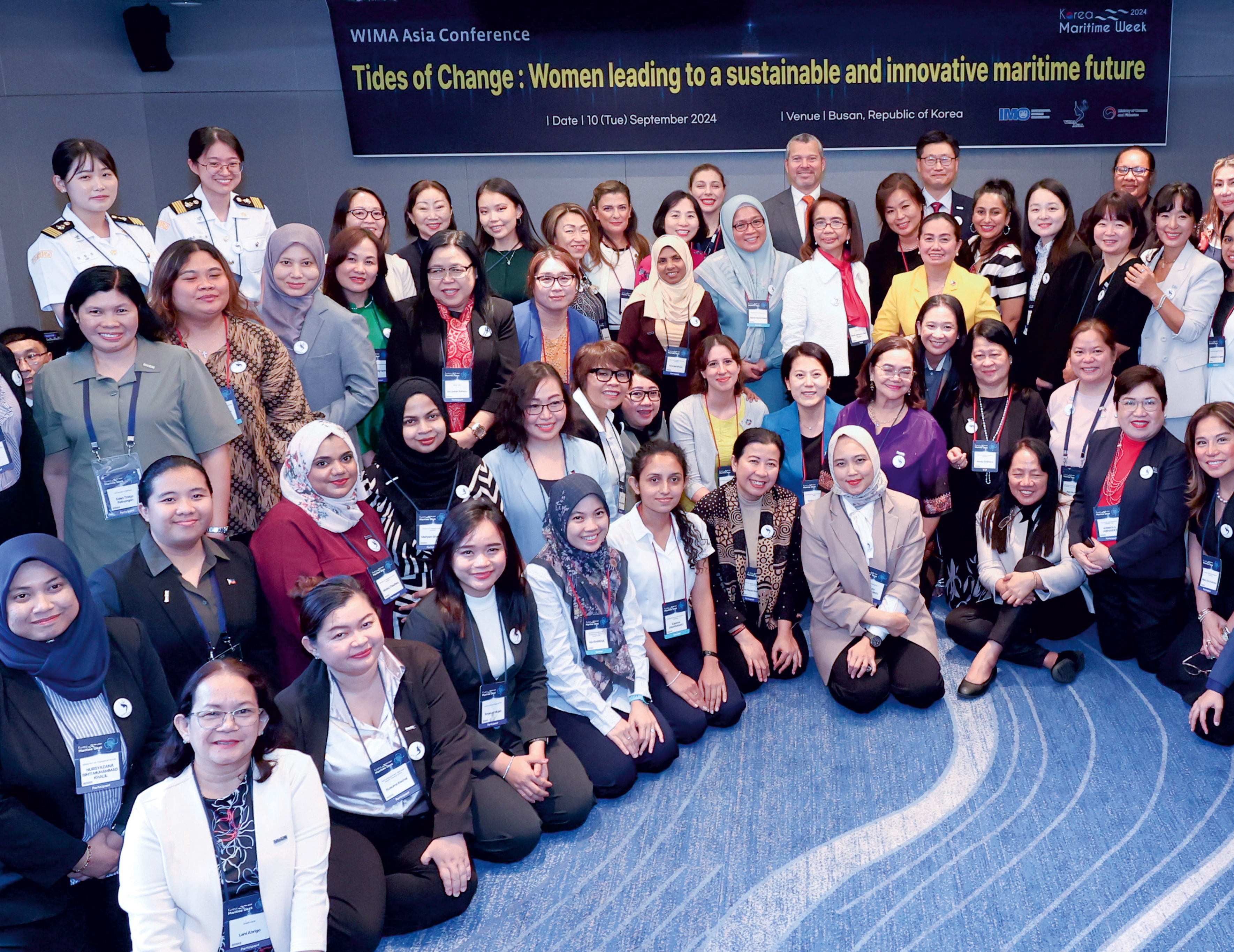IMO-WISTA Women in Maritime Survey indicates ongoing gender disparity in the maritime sector, sparking renewed calls for action.

The IMO-WISTA survey is held every three years to review the global participation of women in the maritime sector and promote gender equality.
The second Women in Maritime survey, jointly published by the International Maritime Organization (IMO) and the Women's International Shipping & Trading Association (WISTA), provides new insights into gender diversity within the industry.
The report presents data on the proportion and distribution of women working in the maritime sector from IMO Member States and the private sector.
The results are based on an analysis of a larger number of women working in maritime across the public and private sectors: 176,820 women in 2024 compared to 151,979 in 2021. In particular, there was a substantial increase in the number of Member States participating. However, the latest dataset shows that women account for just under 19% of the total workforce sampled, compared to a share of 26% in the catchment group reported in 2021.
Of the sample group, women account for 19% of the workforce of national maritime authorities in Member States, and only 16% of the surveyed private sector workforce (excluding seafarers). At sea, women remain vastly underrepresented, accounting for just 1% of the total number of seafarers employed by surveyed organisations.
Arsenio Dominguez, Secretary-General, IMO, said: "The second IMO-WISTA Women in Maritime Survey provides valuable insights into the sector's progress since the baseline dataset gathered in the 2021 survey. Greater participation in the survey from Member States and industry is a welcome indication of growing engagement with gender matters.
"However, there is some way to go. Female representation is still disproportionately low, and women represent a small fraction of the seagoing workforce, highlighting the urgent need for continued commitment and action. We must redouble our efforts to foster a truly diverse and inclusive maritime industry."
Providing insights into leadership, workforce participation, policies and education in both the public and private sectors, the report highlights significant variances between activities. Greater female representation was found in emerging sectors such as Environmental, Social and Governance (ESG) and decarbonisation services, while others, such as bunkering and legal services, recorded a decline.
Elpi Petraki, President, WISTA International, said: "The Women in Maritime Survey was designed to deliver real data on the state of gender diversity in maritime and offer guidance on the areas that require more attention. The intention is to inspire change and act as a collective call to action.
"Attracting, retaining and promoting women - both on land and at sea - remains a priority moving forward. However, the new data also shows how opportunities across the industry continue to be limited for women due to barriers such as gender stereotyping, workplace safety concerns, a lack of family friendly policies and the ongoing gender pay gap."
The report provides detailed recommendations on how Member States and industry can contribute to improving gender diversity in maritime, by enhancing recruitment and retention initiatives, expanding mentorship and leadership development programmes, strengthening policy implementation and guaranteeing safe and supportive working environments.
As part of the commitment from the IMO and WISTA International to enhance gender diversity within the maritime sector, the survey and its findings contribute to the implementation of the fifth United Nation's Sustainable Development Goal (UN SDG5) - to achieve gender quality and empower all women and girls - by providing comparable data to support the development of programmes and policies to encourage female participation within the maritime industry.
Press enquiries
WISTA International
Debbi Bonner, Managing Director, JLA Media Ltd, [email protected]
International Maritime Organization






